Many families who relish consuming chicken, especially during Christmas, may not be able to afford the delicacy as they did in past years.
Customers have been advised to brace themselves to pay more for chicken this festive season.
But poultry farmers are hardest hit because they are unable to stock their pens for the festivities as they used to do.
On the 25th of December, millions will celebrate Christmas.
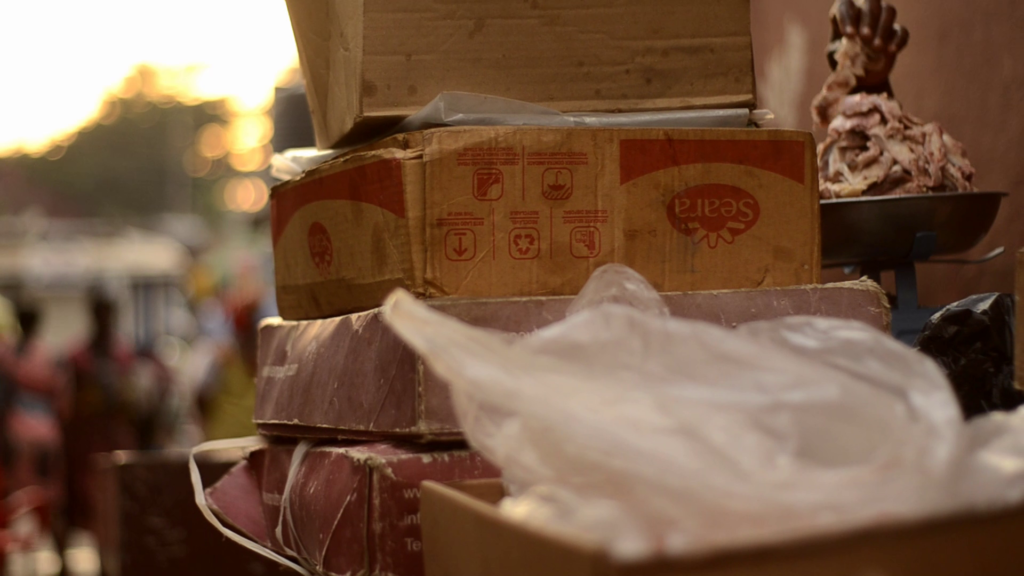
The festivities put smiles on the faces of poultry farmers as they record huge sales and profit.
In previous years, 68-year-old Joseph Amoako Nketiah raised thousands of broilers and layers, targeting the Christmas and New Year celebration.
But this year, his 40,000-capacity bird farm is virtually empty.
Few days before Christmas, he can count only 300 birds on his farm.
“Buying 50kg of maize is about Ghc 210 cedis. If I go in to buy 5% of concentrate, it is 130 cedis. Soybean is 550 cedis. I calculate everything. If for now I want to make a tonne of feed, it is over Ghc 5,000 cedis,” he explained.
Other poultry farmers in the region are unhappy.
They struggle with the exorbitant prices of maize, soybean and wheat to feed the birds.
Last year, Mr Nketiah sold his layer birds at 30 cedis and 50 cedis for the broiler at the farm gates.
Now, he has been compelled to increase the prices to 50 cedis for a healthy-looking layer and 70 cedis for a fattened broiler.
“The layer is between 60 to 70 cedis. A crate of eggs is sold between 40 to 50 cedis depending on the size. The lowest price is 35 cedis. But sometimes the market women increase the price. If they buy at 60 cedis from the farm gate, it is sold for 100 cedis at the market,” he said.
The countdown to Xmas has begun. A market survey across the business district of Kumasi revealed layer birds are sold between 60 and 70 cedis.
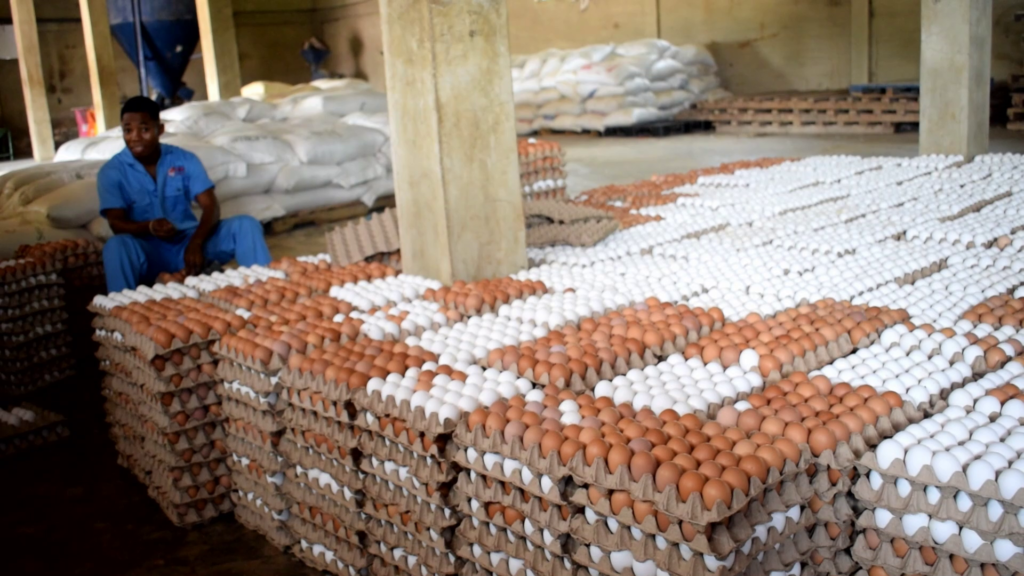
Broilers on the other hand range from 70 to 100 cedis. Traders price the fowls based on how fat and healthy they look.
“The price of a fowl is 70 cedis. A few months ago, it was sold at 60 cedis,” Rose Kwakye said.
Some struggle with sales as purchasing power has reduced.
“The poultry is expensive nowadays. We were told it will be increased again. If it is, then we will run at a loss. This Christmas, we might record low sales,” Yaa Bodey bemoaned.
The poultry value chain involves production, processing, packaging, storage, and retailing.
Asafo, the hub of the packaging and storage of frozen meat, has less vibrancy as before.
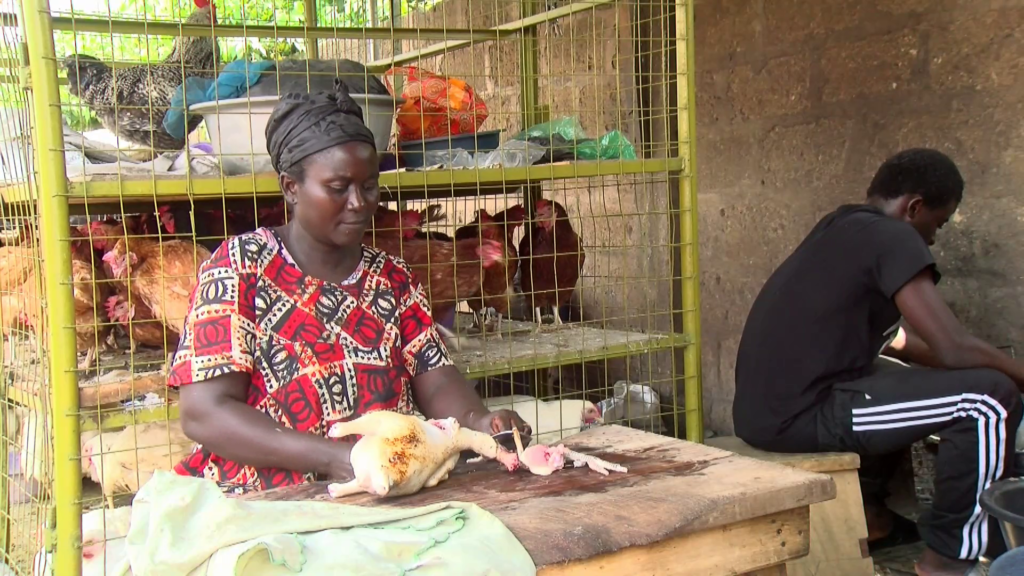
Cold store operator, Awuku Razak, says both imported and locally produced chicken are sold to them at high prices.
“The farmers do not supply us with fowls often. But the rate at which we consume chicken, there should be a fast supply,” he said.
Another trader, Joana Takyi Mensah, observed the purchasing power of her customers have reduced.
“Previously, a box of frozen chicken was sold for 150 cedis. Now the prices range from 320 to 350 cedis,” he said.
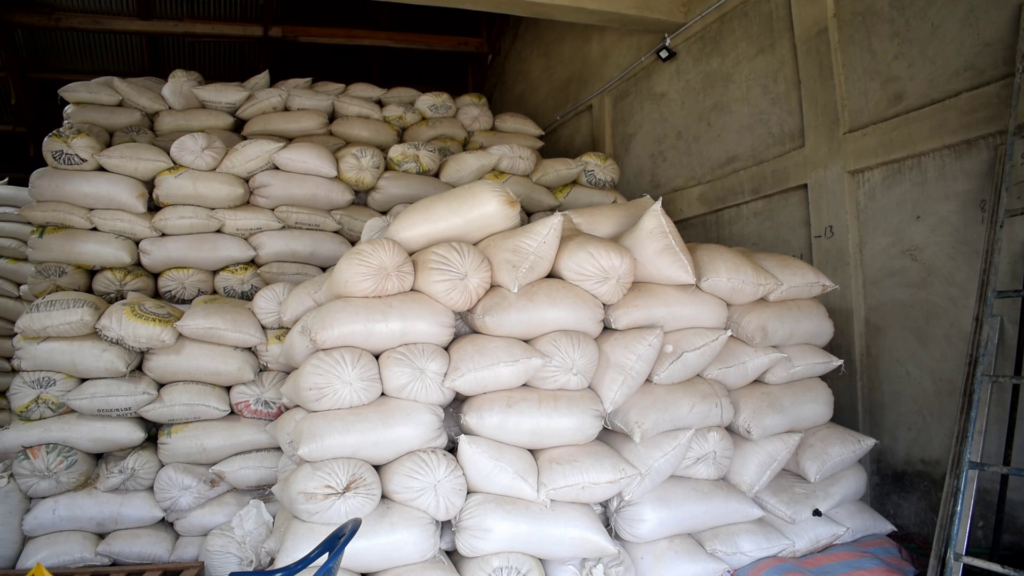
Consumers who have been crisscrossing the markets for Christmas shopping, however, lamented the price increases. They will opt for other protein foods.
“ It is not easy! We cannot buy meat anymore. My friends and I decided to prepare soup. With 20 cedis, I roamed Asafo Market. No one is selling to me. I am told one chicken thigh is selling at 25 cedis. Can my 12 friends and 1 consume one chicken thigh? he quizzed.
Little intervention from the government is collapsing many poultry businesses.
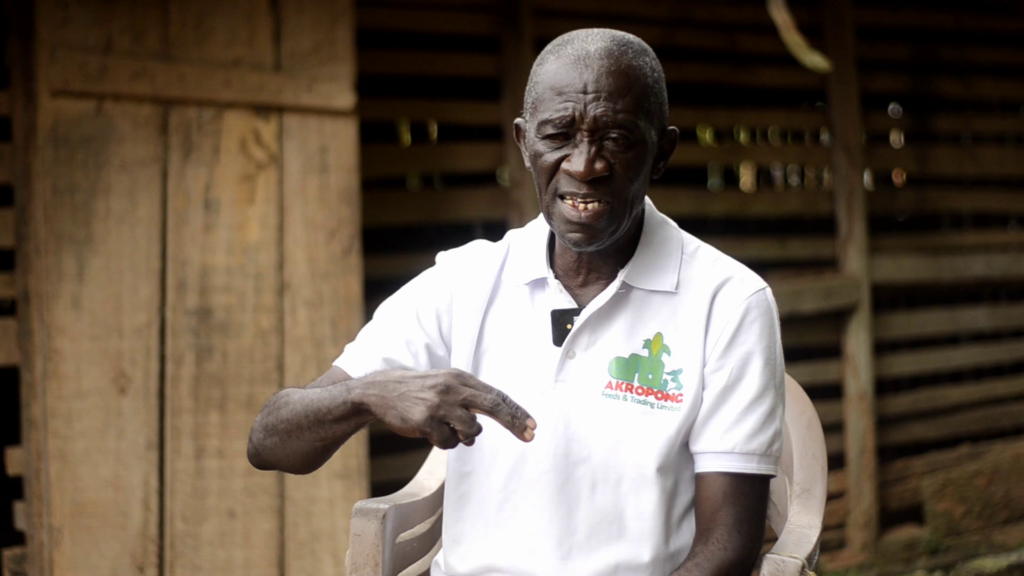
Mr Nketiah who is the Ashanti Regional Secretary of the Poultry Farmers Association has laid off most of his workers to enable him to stay in business.
“When I kept about 40,000 broilers, I employed 25 workers. I paid all of them. But now, we have sacked everyone. I only have two workers now,” he said.
The plight of poultry farmers has worsened as they are denied credit from financial institutions.
“Look at the poultry industry now. There is no subsidy. There is absolutely nothing. That local farmer has to struggle to get his own feed. Even going to the bank has become a problem. They ask “What are you? A poultry farmer?”, If you are, they will not give you any money,” he said.
The Poultry Farmers Association is calling on the Government to begin producing more maize and soya under the Planting for Food and Jobs program to alleviate the challenges of poultry farmers.





